






Profound Treatment
Verified Center
This provider's information has been quality-checked by Recovery.com's Research Team for accuracy and completeness, including center verification through appropriate third-party organizations.
Treatment Focus
This center treats substance use disorders and co-occurring mental health conditions. Your treatment plan addresses each condition at once with personalized, compassionate care for comprehensive healing.
Primary Level of Care
Offering intensive care with 24/7 monitoring, residential treatment is typically 30 days and can cover multiple levels of care. Length can range from 14 to 90 days typically.
Treatment Focus
This center treats substance use disorders and co-occurring mental health conditions. Your treatment plan addresses each condition at once with personalized, compassionate care for comprehensive healing.
Primary Level of Care
Offering intensive care with 24/7 monitoring, residential treatment is typically 30 days and can cover multiple levels of care. Length can range from 14 to 90 days typically.
Provider's Policy
Profound Treatment Center accepts most private PPO insurance plans and some private HMO plans. If you have specific questions about what services your benefits will cover, give us a call.
Profound Treatment
Profound Treatment
About Profound Treatment
Profound Treatment treats addiction and co-occurring mental health conditions in an upscale residential facility, with detox and residential treatment available. They prioritize personalized treatment plans and begin treatment with in-depth assessments. Profound Treatment caters to working professionals, first responders and government employees, IRS employees, and LGBTQ+ clients with specialized treatment tracks.
Evidence-Based And Comprehensive
Profound Treatment provides multiple evidence-based therapies, including eye movement desensitization and reprocessing (EMDR), cognitive behavioral therapy (CBT), dialectical behavioral therapy (DBT), psychodynamic therapy, somatic experiencing, and experiential therapies. Their therapies and individualized care treat co-occurring conditions like post-traumatic stress disorder (PTSD), depression, anxiety, bipolar disorder, borderline personality disorder (BPD), and self-harm behaviors.
A Holistic Path to Recovery
Profound Treatment services include medically monitored detox and residential care with 24/7 supervision and support. They provide family therapy, on-site 12-Step meetings, case management, and aftercare planning. Profound Treatment also offers vocational skill training, helping clients find work, a place to live, manage their finances, and practice self-care. Their adjunct therapies include acupuncture, yoga, morning meditation sessions, and hiking on nearby trails. An on-site chef prepares all meals.
Specialized Treatment Tracks
Profound Treatment offers specialized treatment tracks for working professionals, first responders, government and IRS employees, and LGBTQ+ clients. Their professionals program allows phone and laptop use with designated time for work. Their first responders program addresses occupational trauma, burnout, and stress. Government and IRS employees receive specialized care focused on burnout, stress, and work-life balance.
Highlights from the Center
Highlights
These highlights are provided by and paid for by the center.
Perfect for Professionals
Pet Friendly
Tech Friendly
Executive Treatment
Center Overview
Treatment Focus
This center treats substance use disorders and co-occurring mental health conditions. Your treatment plan addresses each condition at once with personalized, compassionate care for comprehensive healing.
Joint Commission Accredited
The Joint Commission accreditation is a voluntary, objective process that evaluates and accredits healthcare organizations (like treatment centers) based on performance standards designed to improve quality and safety for patients. To be accredited means the treatment center has been found to meet the Commission's standards for quality and safety in patient care.
Insurance Accepted
Cash Pay Rates
Estimated Cash Pay Rate
Center pricing can vary based on program and length of stay. Contact the center for more information. Recovery.com strives for price transparency so you can make an informed decision.
Meet Your Care Team

Dr. Jason Giles
Medical Director
MD, Board Certified Addictionologist
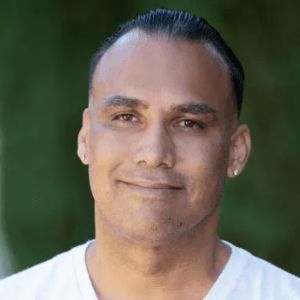
Mitchell Jordan
Group Facilitator
CADC-III

Priscilla Gonzales
Chef

Marco Pardo
Facilitator, Grief, Loss & Spirituality Counselor
CATC-IV, LAADC

Sheryl Abrams
Therapist
AMFT, CADC-II

Lindsey Tong
Clinical Director
LCSW
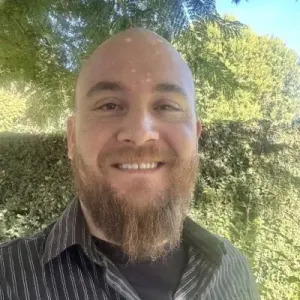
Josh Dunne
Case Manager
CADC - I,

Katie Valenzuela
Alumni Relations
RADT
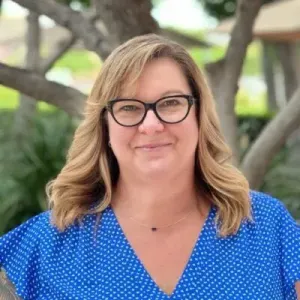
Julie Barron
Human Resources Director in Administration
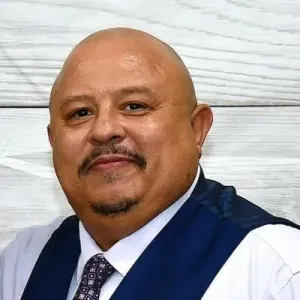
Rob Angulo
Director of Operations
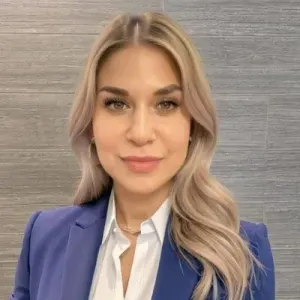
Ashley Barnett
Program Manager
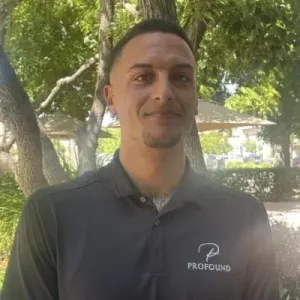
Rob Lewis
Assistant Director of Operations
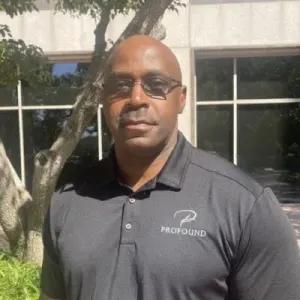
David Dotson
Program Manager

Erika Grohs
Program Director

Jillian Hendrix
Therapist
APCC

Irma Bustamonte
Case Manager
CATC III

Becky Glover
Case Manager Intern
SUDC

Kylan Green
Alumni Coordinator
RADT

Kazi Foxworth
Lead Behavioral Technician
RADT

Staci Cohen
Lead Behavioral Technician
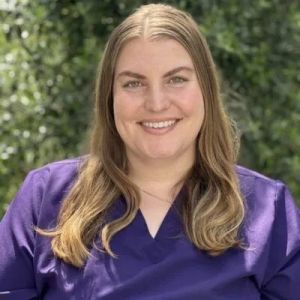
Caitlin Valdez
Health Services Coordinator
LVN

Maria Martinez
Health Services Coordinator
LVN




Levels of Care








Your Care Options
Specializations
Alcohol
Using alcohol as a coping mechanism, or drinking excessively throughout the week, signals an alcohol use disorder.
Co-Occurring Disorders
A person with multiple mental health diagnoses, such as addiction and depression, has co-occurring disorders also called dual diagnosis.
Pet Friendly
For greater comfort and healing, pet-friendly treatment centers welcome dogs and animal companions to stay with their owners while they attend treatment.
Drug Addiction
Drug addiction is the excessive and repetitive use of substances, despite harmful consequences to a person's life, health, and relationships.
Executives
Executive treatment programs typically directly support the needs of people who manage businesses and may provide flexible schedules and office space to allow work during treatment.
Professionals
Busy, high-ranking professionals get the personalized treatment they need with greater accommodations for work, privacy, and outside communication.
First Responders Program
Paramedics, police officers, firefighters, and others join in a specific First Responders program, usually focused on trauma, grief, and work-life balance.
Who We Treat
Executives
Executive treatment programs typically directly support the needs of people who manage businesses and may provide flexible schedules and office space to allow work during treatment.
Young Adults
Emerging adults ages 18-25 receive treatment catered to the unique challenges of early adulthood, like college, risky behaviors, and vocational struggles.
LGBTQ+
Addiction and mental illnesses in the LGBTQ+ community must be treated with an affirming, safe, and relevant approach, which many centers provide.
Midlife Adults
For adults ages 40+, treatment shifts to focus on the unique challenges, blocks, and risk factors of their age group, and unites peers in a similar community.
Professionals
Busy, high-ranking professionals get the personalized treatment they need with greater accommodations for work, privacy, and outside communication.
Approaches
Evidence-Based
A combination of scientifically rooted therapies and treatments make up evidence-based care, defined by their measured and proven results.
Family Involvement
Providers involve family in the treatment of their loved one through family therapy, visits, or both–because addiction is a family disease.
Holistic
A non-medicinal, wellness-focused approach that aims to align the mind, body, and spirit for deep and lasting healing.
Personalized Treatment
The specific needs, histories, and conditions of individual patients receive personalized, highly relevant care throughout their recovery journey.
Therapies
1-on-1 Counseling
Patient and therapist meet 1-on-1 to work through difficult emotions and behavioral challenges in a personal, private setting.
Meditation & Mindfulness
A practiced state of mind that brings patients to the present. It allows them to become fully aware of themselves, their feelings, and the present moment.
Rational Emotive Behavior Therapy
A type of cognitive therapy that identifies negative self-defeating thoughts and behaviors, rewriting beliefs to be positive, empowering, and present.
Adventure Therapy
This experiential approach uses the physical and emotional challenges of outdoor activities as tools for personal growth.
Animal Therapy
Animals can inspire trust and self-worth. In this experiential therapy, guided interactions are used to improve social skills and emotion regulation.
Art Therapy
Visual art invites patients to examine the emotions within their work, focusing on the process of creativity and its gentle therapeutic power.
Conditions We Treat
Grief and Loss
Grief is a natural reaction to loss, but severe grief can interfere with your ability to function. You can get treatment for this condition.
ADHD, ADD
ADHD is a common mental health condition caused by dopamine imbalance. Common symptoms include inattention, hyperactivitiy, and impulsivity.
Anger
Although anger itself isn't a disorder, it can get out of hand. If this feeling interferes with your relationships and daily functioning, treatment can help.
Anxiety
Anxiety is a common mental health condition that can include excessive worry, panic attacks, physical tension, and increased blood pressure.
Bipolar
This mental health condition is characterized by extreme mood swings between depression, mania, and remission.
Codependency
Codependency is a pattern of emotional dependence and controlling behavior. It's most common among people with addicted loved ones.
Depression
Symptoms of depression may include fatigue, a sense of numbness, and loss of interest in activities. This condition can range from mild to severe.
Post Traumatic Stress Disorder
PTSD is a long-term mental health issue caused by a disturbing event or events. Symptoms include anxiety, dissociation, flashbacks, and intrusive thoughts.
Stress
Stress is a natural reaction to challenges, and it can even help you adapt. However, chronic stress can cause physical and mental health issues.
Substances We Treat
Alcohol
Using alcohol as a coping mechanism, or drinking excessively throughout the week, signals an alcohol use disorder.
Benzodiazepines
Benzodiazepines are prescribed to treat anxiety and sleep issues. They are highly habit forming, and their abuse can cause mood changes and poor judgement.
Chronic Relapse
Consistent relapse occurs repeatedly, after partial recovery from addiction. This condition requires long-term treatment.
Co-Occurring Disorders
A person with multiple mental health diagnoses, such as addiction and depression, has co-occurring disorders also called dual diagnosis.
Cocaine
Cocaine is a stimulant with euphoric effects. Agitation, muscle ticks, psychosis, and heart issues are common symptoms of cocaine abuse.
Drug Addiction
Drug addiction is the excessive and repetitive use of substances, despite harmful consequences to a person's life, health, and relationships.
Ecstasy
Ecstasy is a stimulant that causes intense euphoria and heightened awareness. Abuse of this drug can trigger depression, insomnia, and memory problems.
Heroin
Heroin is a highly addictive and illegal opioid. It can cause insomnia, collapsed veins, heart issues, and additional mental health issues.
Languages
Aftercare
Care Designed for Your Needs
Personal Amenities
Amenities
Special Considerations
Clients can bring their own pet(s)
For greater comfort and healing, pet-friendly treatment centers welcome dogs and animal companions to stay with their owners while they attend treatment.
Flexible technology policies
Centers with flexible technology policies allow professionals to stay in touch with work and give patients a greater sense of connection and normalcy.
LGBTQ group
Group therapy unites LGBTQ+ patients in a safe and culturally competent setting, encouraging peer support under the expert leadership of a therapist.
First Responders Program
Paramedics, police officers, firefighters, and others join in a specific First Responders program, usually focused on trauma, grief, and work-life balance.
Activities
Yoga
Yoga is both a physical and spiritual practice. It includes a flow of movement, breathing techniques, and meditation.
Off-Site Activities
Yoga
Yoga is both a physical and spiritual practice. It includes a flow of movement, breathing techniques, and meditation.
Off-Site Amenities
What people are saying
Treatment
4.9
Accommodations
4.8
Food & Nutrition
4.7
Value
4.6
Pros
- Fun Activities (21)
- Treated With Respect (21)
- Beautiful Location (20)
- Luxurious Accommodations (20)
Cons
- Not Enough Time With Therapist (3)
SL
Treatment in 2025 • (30 days) • Reviewed 03/13/25
Former Client
•Los Angeles, CA
Zach M
Treatment in 2025 • (30 days) • Reviewed 03/03/25
Former Client
•Tennessee
Luke G
Treatment in 2025 • (30 days) • Reviewed 02/19/25
Former Client
•Geo-field technician
•Ohio
Connor D
Treatment in 2024 • (30 days) • Reviewed 03/21/24
Former Client
•Wisconsin
Aaron S
Treatment in 2024 • (30 days) • Reviewed 02/14/24
Former Client
•Construction Manager






